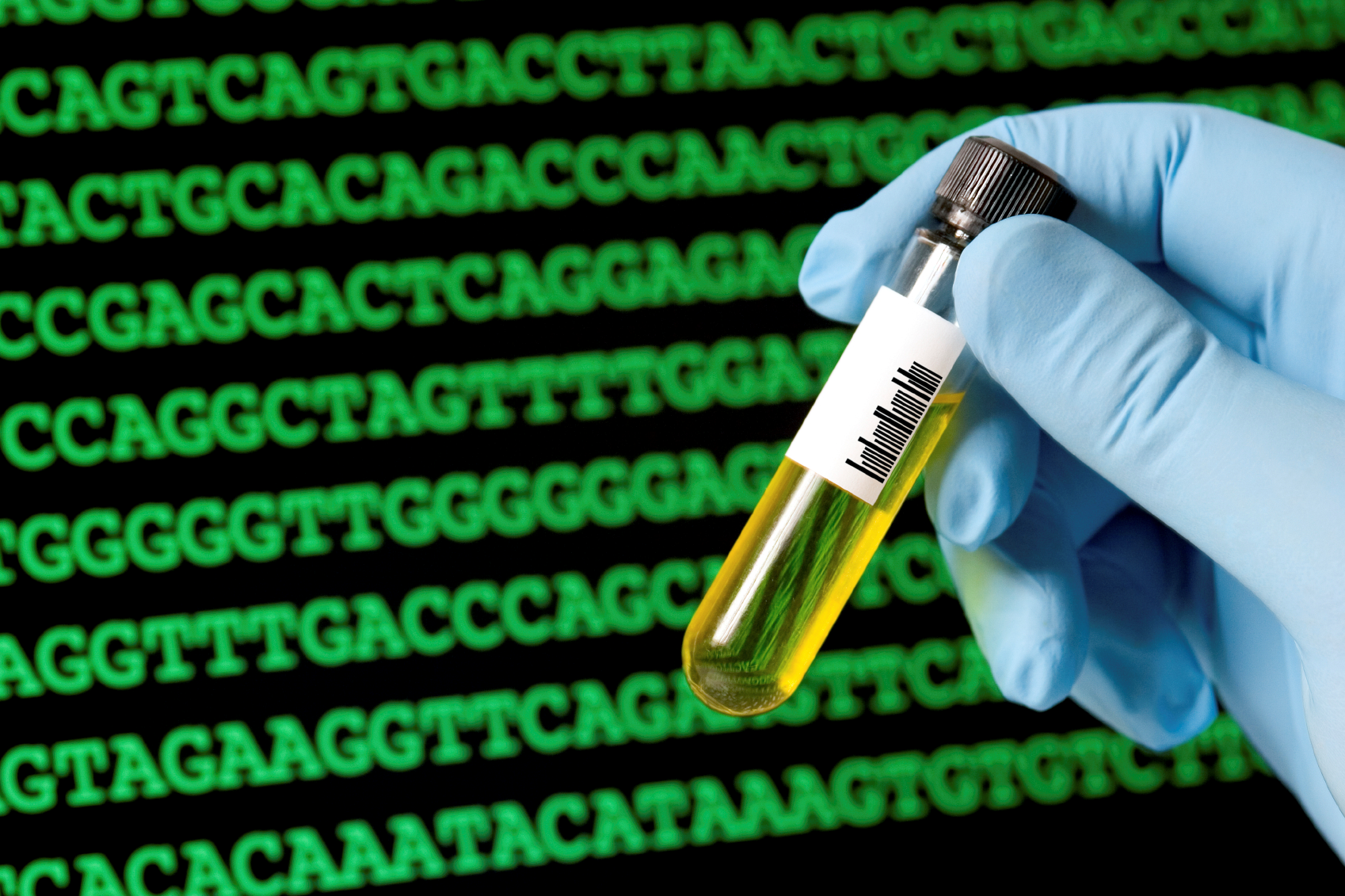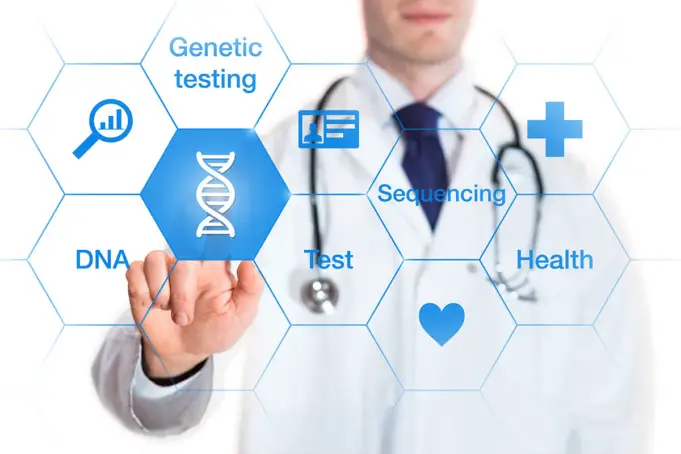Genetic testing includes investigating your DNA, the chemical database that contains guidance for your body’s functions. Genetic testing may show modifications (mutations) that may cause illness or disease in your genes.
There are drawbacks, but genetic testing can provide valuable knowledge for diagnosing, treating, and preventing disease. For instance, a positive outcome from genetic testing doesn’t necessarily mean you will develop a disease if you’re a healthy person. On the other hand, a bad outcome in certain cases does not guarantee that you won’t have a certain condition.
It is a necessary phase in the process of genetic testing to speak to your doctor, a medical geneticist, or a genetic counselor about what you can do with the findings.
Genome sequencing
Some facilities offer genome sequencing, a tool for evaluating a sample of DNA extracted from your blood when genetic testing does not lead to a diagnosis, but a genetic cause is still suspected.
Each has a different genome, made up of the DNA in all of an individual’s genes. This complicated testing can help to recognize genetic variants that could be associated with your health. This testing is generally limited to only looking at the DNA pieces called the exome that is protein-encoding.
Why it’s done
As well as screening and occasionally medical care, genetic testing plays a critical role in assessing the risk of contracting such illnesses.
For various purposes, different forms of genetic testing are done:
- Diagnostic testing. Genetic testing may reveal if you have symptoms of a disease that may be caused by genetic changes, often referred to as mutated genes, if you have the suspected disorder. For example, to validate a diagnosis of cystic fibrosis or Huntington’s disease, genetic testing can be used.
- Presymptomatic and predictive testing. Suppose you have a family history of a genetic disorder. In that case, it can be seen if you are at risk of having the condition by getting genetically tested before you have symptoms. This form of examination, for example, can be helpful in assessing the risk of some forms of colorectal cancer.
- Carrier testing. You may opt to get genetic testing before having kids if you have a family history of a genetic disorder, such as sickle cell anemia or cystic fibrosis, or in an ethnic group with a high risk of a particular genetic disorder. An extended carrier screening test can recognize genes associated with a wide range of genetic disorders and mutations and can decide if you and your partner are carriers of the same diseases.
- Pharmacogenetics. This form of genetic testing may help decide what medication and dosage would be most effective and beneficial for you if you have a specific health condition or illness.
- Prenatal testing. Tests can detect certain forms of defects in your baby’s genes while you’re pregnant. Two genetic conditions that are frequently tested for as part of prenatal genetic testing are Down syndrome and Trisomy 18 syndrome. This is traditionally accomplished by looking at blood markers or intrusive procedures, such as amniocentesis. A new test called cell-free DNA testing looks at a baby’s DNA through a mother’s blood test.
- Newborn screening. This is the most common genetic testing form. In the United States, all states mandate that such genetic and metabolic defects that cause particular disorders to be checked on newborns. This form of genetic testing is important since care and treatment will start immediately if results indicate there is a condition such as congenital hypothyroidism, sickle cell disease, or phenylketonuria (PKU).
- Preimplantation testing. This test can be used when you try to conceive a child through in vitro fertilization, also called preimplantation genetic diagnosis. For congenital defects, the embryos are screened. In hopes of achieving pregnancy, embryos without anomalies are inserted into the uterus.
Risks
Genetic testing usually carries no physical risk. There is almost no danger of blood and cheek swab examinations. However, prenatal tests such as amniocentesis or screening of chorionic villus have a minor chance of pregnancy loss (miscarriage).
Genetic testing may also have emotional, social, and economic risks. Before getting a genetic test, explore all the dangers and benefits of genetic testing with your doctor, a medical geneticist, or a genetic counselor.
How you prepare?

Gather as much knowledge as you can about your family’s medical background until you have genetic testing. Then talk about your personal and family medical background with your doctor or a genetic counselor to better understand your risk.
Ask questions and raise at that meeting any doubts about genetic testing. Often, depending on the test findings, talk about your choices.
You will want to consider discussing your decision to have genetic testing with your family if you are being screened for a genetic disorder that runs in families. Until studying, holding these conversations will give you a sense of how your family may react to your test results and how it might affect them.
Not all plans for health insurance providers for genetic testing. So, to see what will be protected, check with your insurance company before you have a genetic test.
The Federal Genetic Information Nondiscrimination Act of 2008 (GINA) in the United States helps protect you from being discriminated against by health insurers or employers based on test results.
Job discrimination based on genetic risk is also illegal under GINA. This act, however, does not cover life, long-term care, or insurance for disabilities. Most states provide extra security.
What you can expect?
A sample of your blood, skin, amniotic fluid, or other tissue will be collected and sent to a lab for examination, depending on the type of test.
- Blood sample. The sample is taken by a member of your health care team by sticking a needle into a vein in your arm. A blood sample is taken by pricking the baby’s heel for newborn screening tests.
- Cheek swab. A swab sample from the inside of your cheek for genetic testing is taken for certain tests.
- Amniocentesis. In this prenatal genetic test, to extract a small amount of amniotic fluid for examination, the doctor sticks a thin, hollow needle through your abdominal wall and into your uterus.
- Chorionic villus sampling. Your doctor takes a tissue sample from the placenta for this prenatal genetic examination. The sample can be taken with a tube (catheter) through your cervix or through your abdominal wall and uterus by using a thin needle, depending on your circumstance.
Results?
Depending on the type of test, and your health care provider, the length of time it takes for you to collect your genetic test results. Before the exam, speak with your doctor, medical geneticist, or genetic counselor about when you should expect the results and have a debate about them.
Positive results
If the genetic test outcome is positive, it indicates that the genetic alteration that was being screened for has been found. The steps you take will depend on the reason you have genetic testing after you get a positive result.
If the purpose is to help with:
- Diagnosing a particular illness or disorder will help you and your doctor evaluate the correct care and management strategy for a positive outcome.
- Your doctor, medical geneticist, or genetic counselor will help you assess your child’s likelihood of potentially having the disease if you are carrying a gene that may trigger your child’s disease and the test is positive. When you and your partner make family planning decisions, the test results will also provide information to remember.
- A positive result doesn’t necessarily mean you’re going to have the condition, so you can develop a certain disease. For instance, having a gene for breast cancer (BRCA1 or BRCA2) means that you are at high risk of getting breast cancer at some stage in your life, but it doesn’t imply with certainty that you will get breast cancer. However, possessing the altered gene, with certain diseases, such as Huntington’s disease, means that it will eventually evolve.
Speak to your doctor about what you think a good outcome entails. In certain cases, even though you have a mutation that makes you more vulnerable to an illness, you may make lifestyle changes that could decrease the risk of contracting a disease. Outcomes will also help you make decisions about treatment, family planning, jobs, and insurance coverage.
You may also opt to engage in tests or records linked to your genetic disorder or disease. These options can help you to stay up-to-date with new prevention or treatment developments.
Negative results
A negative result indicates that the test did not find a mutant gene, which may be comforting, although it is not a 100% assurance that you do not have the condition.
Depending on the disorder being screened for and whether or not the gene mutation was previously identified in a family member, genetic testing precision to identify mutated genes varies.
That doesn’t actually mean you’re never going to catch the disease, even though you don’t have a mutated gene. For instance, most people who develop breast cancer don’t have a gene for breast cancer (BRCA1 or BRCA2).
Often, all genetic defects can not be detectable by genetic testing.
Inconclusive results
A genetic test could not provide useful information about the gene in question in certain instances. The way genes appear, everyone has variations, and sometimes these variations don’t affect your health.
It can often be hard to differentiate between a gene causing disease and a variant of a harmless gene. Such modifications are considered variants of unknown value. Follow-up testing or repeated analysis of the gene over time may be appropriate in these circumstances.
Genetic counseling
Speak to your doctor, medical geneticist, or genetic counselor about any questions or concerns you may have, regardless of your genetic tests’ outcome. This will allow you to understand for you and your family what the outcomes mean.












